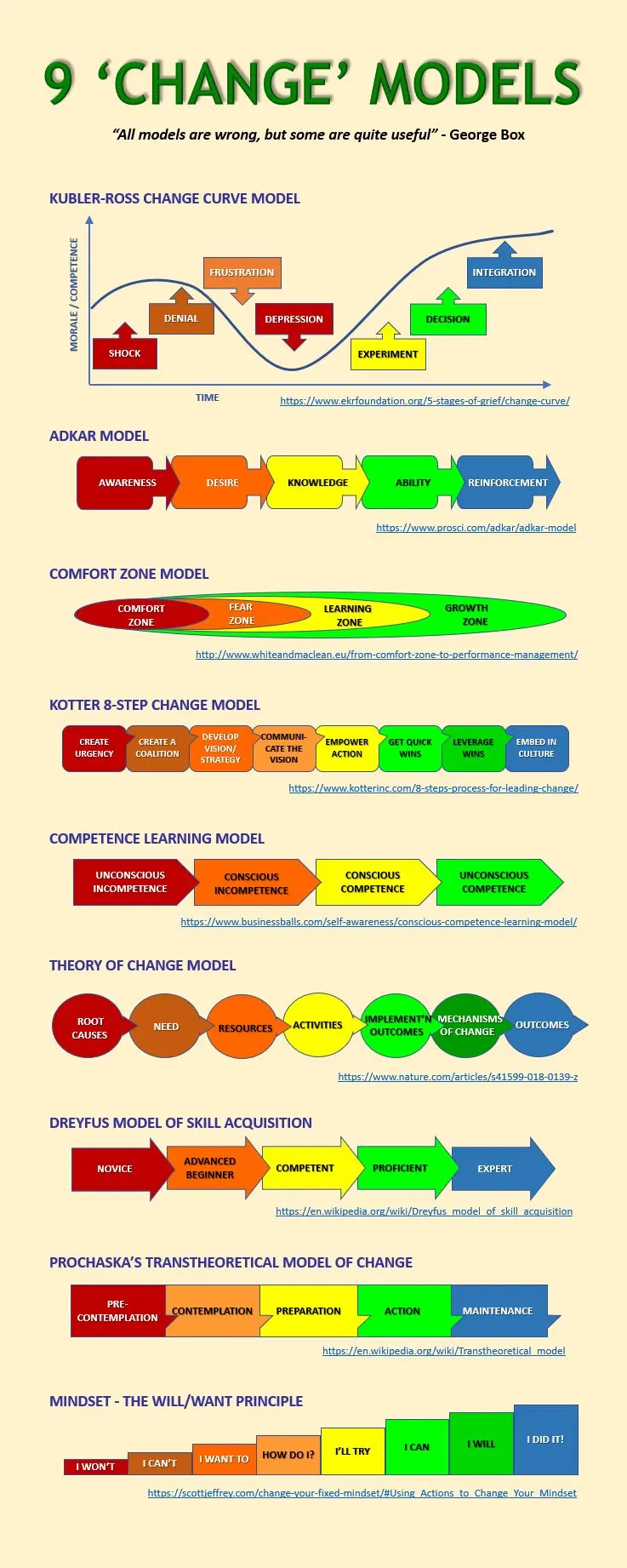This is an old revision of the document!
Change management
- Software Change Management
- Organisation Change Management
- Business Change Management
- Project Change Management
What is Change Management?
Change management is the application of a structured process and set of tools for leading the people side of change to achieve a desired outcome.While all changes are unique and all individuals are unique, decades of research shows there are actions we can take to influence people in their individual transitions. Change management provides a structured approach for supporting people in your organization and helping them move from their current states to their own future states.
— Prosci
- Prosci ADKAR Model
- Snippet from Wikipedia: Change management
Change management (CM) is a collective term for all approaches to prepare, support, and help individuals, teams, and organizations in making organizational change. It includes methods that redirect or redefine the use of resources, business process, budget allocations, or other modes of operation that significantly change a company or organization.
Lack of consideration for changing the environment (Bednar, 2020, p.100) is poor change management, this is a lack of preparation for future change. An example of this is evolving technologies, new skills may be required (Bessen, 2016) which could impact training protocols. The Human Activity System (Bednar, 2020, p. 100) is a mode of operation that should be flexible to support positive organisational change.
Organizational change management (OCM) considers the full organization and what needs to change, while change management may be used solely to refer to how people and teams are affected by such organizational transition. It deals with many different disciplines, from behavioral and social sciences to information technology and business solutions.
As change management becomes more necessary in the business cycle of organizations, it is beginning to be taught as its own academic discipline at universities. There are a growing number of universities with research units dedicated to the study of organizational change. One common type of organizational change may be aimed at reducing outgoing costs while maintaining financial performance, in an attempt to secure future profit margins.
In a project-management context, the term "change management" may be used as an alternative to change control processes wherein formal or informal changes to a project are formally introduced and approved.
Drivers of change may include the ongoing evolution of technology, internal reviews of processes, crisis response, customer demand changes, competitive pressure, modifications in legislation, acquisitions and mergers, and organizational restructuring.
Disciplines & Methodologies
- Configuration management
- Decision-making
- DevOps toolchain
- Digital Transformation
- Enterprise Search
- Fusion development
- Information Management
- Information security
- Repository Management
- Software configuration management (SCM)
- Software development process
- Software documentation
- System integration
- Visual Collaboration
